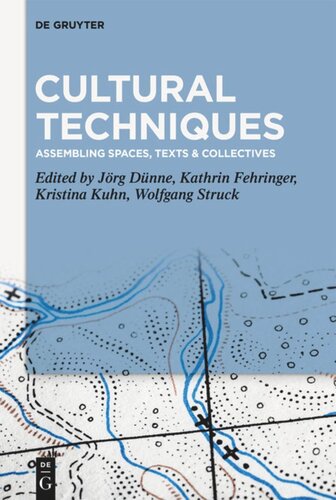

Most ebook files are in PDF format, so you can easily read them using various software such as Foxit Reader or directly on the Google Chrome browser.
Some ebook files are released by publishers in other formats such as .awz, .mobi, .epub, .fb2, etc. You may need to install specific software to read these formats on mobile/PC, such as Calibre.
Please read the tutorial at this link: https://ebookbell.com/faq
We offer FREE conversion to the popular formats you request; however, this may take some time. Therefore, right after payment, please email us, and we will try to provide the service as quickly as possible.
For some exceptional file formats or broken links (if any), please refrain from opening any disputes. Instead, email us first, and we will try to assist within a maximum of 6 hours.
EbookBell Team

4.0
56 reviewsThis volume presents the preliminary results of the work carried out by the interdisciplinary cultural techniques research lab at the University of Erfurt. Taking up an impulse from media studies, its contributions examine —from a variety of disciplinary perspectives—the interplay between the formative processes of knowledge and action outlined within the conceptual framework of cultural techniques. Case studies in the fields of history, literary (and media) studies, and the history of science reconstruct seemingly fundamental demarcations such as nature and culture, the human and the nonhuman, and materiality and the symbolical order as the result of concrete practices and operations. These studies reveal that particularly basic operations of spatialization form the very conditions that determine emergence within any cultural order.
Ranging from manual and philological "paper work" to practices of opening up and closing off spaces and collective techniques of assembly, these case studies replace the grand narratives of cultural history focusing on micrological examinations of specific constellations between human and nonhuman actors.